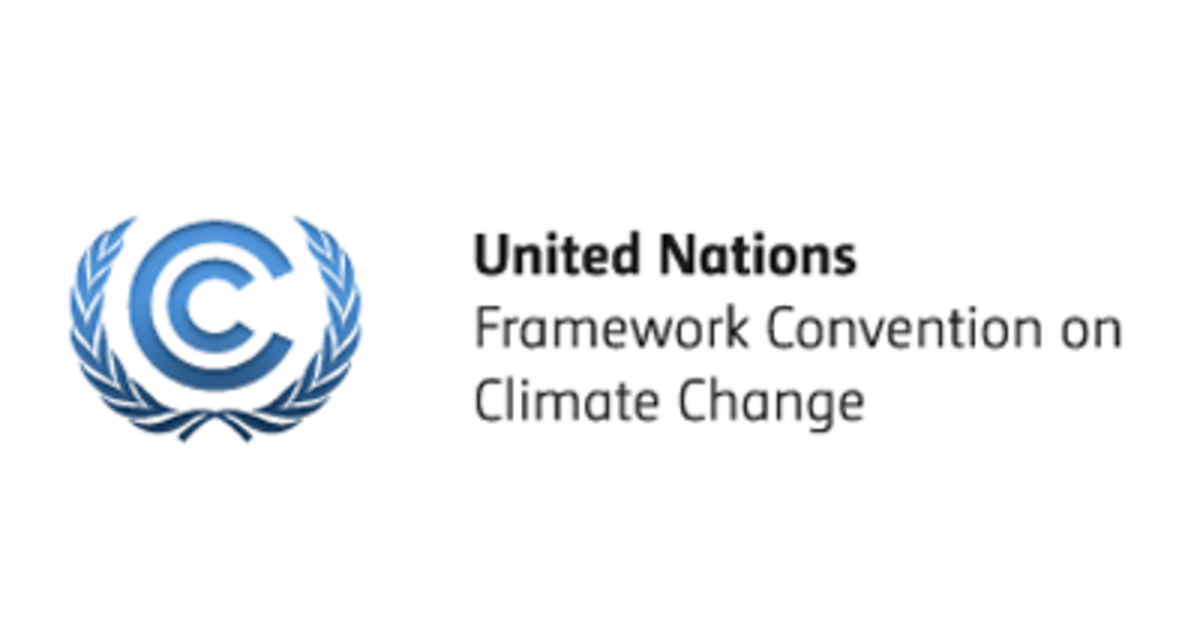UNFCCC

·
The 28th Meeting
of Gatherings (COP28) to the Assembled Countries Structure Show on
Environmental Change (UNFCCC) was held in Dubai, Joined Middle Easterner
Emirates.
What are the
Vital Features of the COP28?
Misfortune and
Harm (L&D) Asset:
·
COP28, part
nations agreed to operationalize the Misfortune and Harm (L&D) store
pointed toward remunerating nations wrestling with environmental change
influences.
·
The World Bank
will be the "in-between time have" of the asset for a long time,
lining up with UNFCCC and the Paris Understanding.
·
All agricultural
nations are qualified to apply, and each nation is "welcomed" to
willfully contribute.
·
A particular rate
is reserved for Least Created Nations and Little Island Creating States.
Worldwide
Stocktake Draft:
·
The Worldwide
Stocktake (GST) is an occasional survey system laid out under the Paris
Understanding in 2015.
·
The fourth draft
of the GST text was uncovered at COP28.
·
The text proposes
eight moves toward keep the worldwide temperature increase inside the ambit of
1.5 degrees Celsius:
·
Significantly
increasing sustainable power limit internationally and multiplying the
worldwide typical yearly pace of energy effectiveness upgrades by 2030;
·
Quickly staging
down unabated coal and restrictions on allowing new and unabated coal power
age;
·
Speeding up
endeavors internationally towards net zero discharges energy frameworks, using
zero and low carbon fills a long time previously or by toward the middle of the
century;
·
Speeding up
nothing and low outflows advancements, including, entomb alia, renewables,
atomic, reduction and evacuation advancements, including, for example, carbon
catch and use and capacity, and low carbon hydrogen creation, to improve
endeavors towards replacement of unabated petroleum derivatives in energy
frameworks.
·
Decreasing both
utilization and creation of petroleum derivatives, in a fair, systematic and
impartial way to accomplish net zero by, previously, or around 2050 with
regards to the science;
·
Speeding up and
considerably diminishing non-CO2 discharges, including, specifically, methane
outflows around the world by 2030;
·
Speeding up
emanations decreases from street transport through a scope of pathways,
including improvement of foundation and fast organization of nothing and low
outflow vehicles;
·
Eliminating of
wasteful petroleum product sponsorships that empower inefficient utilization
and don't address energy neediness or simply changes, straightaway.
MEFTAL AND DRESS SYNDROME
·
The Indian
Pharmacopeia Commission (IPC) has given a medication security alert about
Meftal, the normal pain reliever, saying its constituent, mefenamic corrosive,
triggers serious hypersensitive responses like the DRESS disorder, which
influences inward organs.
What is DRESS Condition?
·
DRESS disorder
(Medication Rash with Eosinophilia and Fundamental Side effects) is an extreme
unfavorably susceptible response influencing around 10% of people, possibly
destructive and brought about by specific prescriptions.
·
It is otherwise
called Medication Actuated Extreme touchiness Condition (DIHS).
It is portrayed by skin rash, high fever, enlarged
lymph hubs and confusions in inner organs.
What is the Utilization and Related Symptoms of
Meftal?
Uses:
·
Meftal is
generally utilized as non-steroidal calming drug (NSAID).
It is generally utilized in India for numerous
reasons, including alleviating feminine torments, migraines, muscle and joint
agony, and is even pervasive among kids for high fever.
Related Incidental effects:
·
Delayed
utilization of medications like Meftal might expand the gamble of stomach
ulcers, draining and related difficulties.
·
Meftal has been
related with expected unfavorable consequences for the cardiovascular
framework.
·
A few specialists
have hailed renal confusions as a possible result of Meftal.
What is Indian Pharmacopeia Commission (IPC)?
·
IPC is an
Independent Organization of the Service of Wellbeing and Family Government
assistance.
·
IPC was made to
set guidelines for drugs in India. Its fundamental capability is to
consistently refresh the norms of medications regularly expected for the
treatment of sicknesses winning around here.
·
It distributes
official archives for working on the Nature of Drugs via adding new and
refreshing existing monographs as Indian Pharmacopeia (IP).
·
It further
advances the sane utilization of conventional prescriptions by distributing the
Public Model of India.
·
IPC likewise
gives IP Reference Substances (IPRS) which go about as a unique finger
impression for distinguishing proof of an article under test and its virtue as
endorsed in IP.
COUGH SYRUP FAILS QUALITY

·
Information from the Focal Medications Standard
Control Association (CDSCO), shows that no less than 6% of hack syrup tests
from 54 Indian producers bombed an obligatory quality test for trade.
·
Gambia, Uzbekistan, Cameroon, and the World
Wellbeing Association (WHO) communicated concerns following the passings of
youngsters who had taken these meds.
·
Indian produced syrups were accounted for to be
defiled with glycol and ethylene glycol harmful substances that can now and
again be deadly, particularly for kids.
·
India's drug area contributes around 1.72% of
Gross domestic product and the business is worth roughly USD 50 billion with
the greater part coming from sends out.
·
The CDSCO under the Service of Wellbeing and
Family Government assistance is a public administrative power of India.
CAPITALISM
·
The
term "anarcho-capitalism" has recently gained attention,
particularly with the recent electoral victory of Javier
Milei, a self-proclaimed anarcho-capitalist, in
the presidential race in Argentina.
·
This political philosophy advocates for
the abolition of the state, proposing that private companies manage
law and order in a free market.
What is Anarcho-Capitalism?
About:
·
Anarcho-capitalism, political philosophy and
political-economic theory that advocates the voluntary exchange of goods and
services in a society broadly regulated by the market rather than by the
state.
·
The term anarcho-capitalism was coined
by Murray Rothbard, a leading figure in the American libertarian movement
from the 1950s.
·
Anarcho-capitalists assert that private
companies in a free market can efficiently provide policing and legal
services.
·
The philosophy contends that similar to private
sectors offering superior products and services, private policing and legal
systems can outperform state-monopolized counterparts.
·
In an anarcho-capitalist society, individuals
pay private police and courts for protection and dispute resolution.
·
Private companies, driven by customer patronage,
are argued to be more accountable, as dissatisfied customers can switch to
competing services.
·
Anarcho-capitalists advocate for competitive
markets, asserting that they guarantee top-tier and cost-effective police
and legal services. This contrasts with state-funded
systems, providing customers the freedom to select services aligned
with their preferences and needs.
Concerns:
·
Multiple private firms offering police and
judiciary services in a single region may lead to armed conflicts and
chaos.
·
Skepticism arises about a market-based
system favouring the wealthy, allowing them to escape justice by paying
more to private firms.
·
Apprehensions exist that a profit-driven
system could marginalize the poor, limiting their access to justice.
·
Critics worry that without a centralized
authority, private firms may not be accountable to the broader
public, influencing justice based on financial interests, and potentially
compromising the integrity of justice.
·
The absence of a centralized authority
may increase the risk of vigilantism, where individuals or groups take the
law into their own hands.
·
Anarcho-capitalism could worsen societal
inequalities, providing better legal protection for those who
can afford premium services.